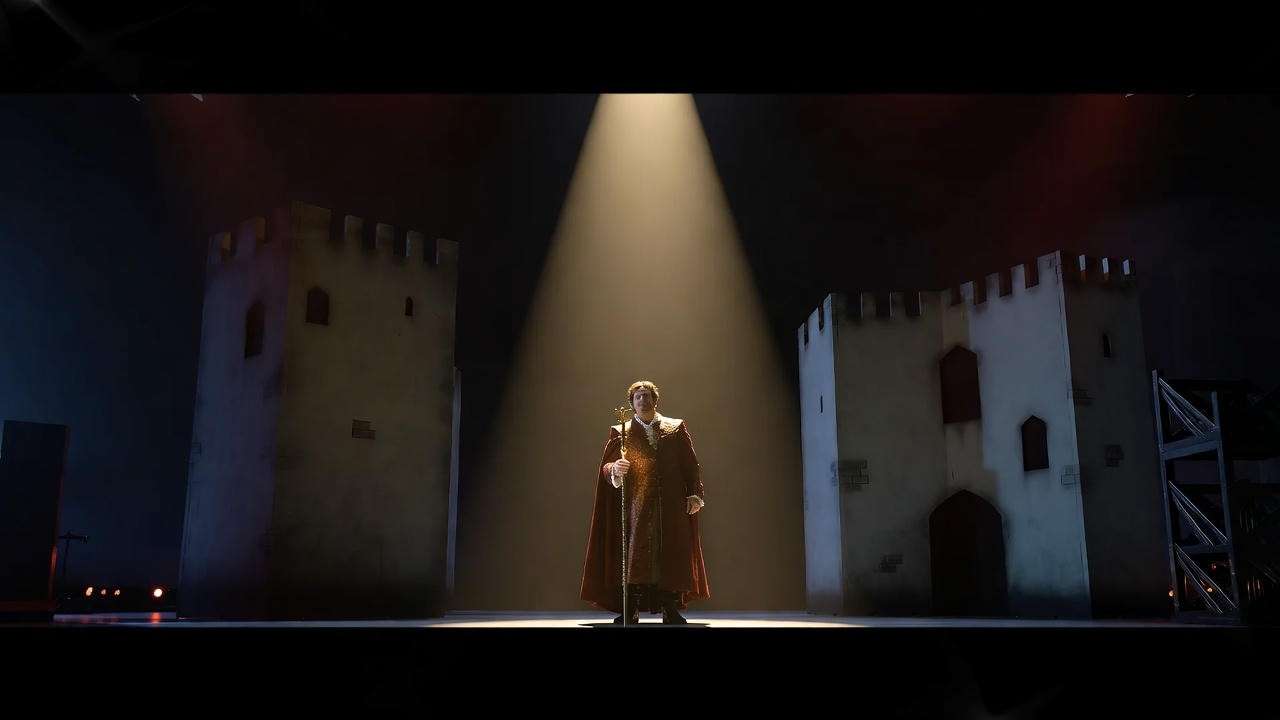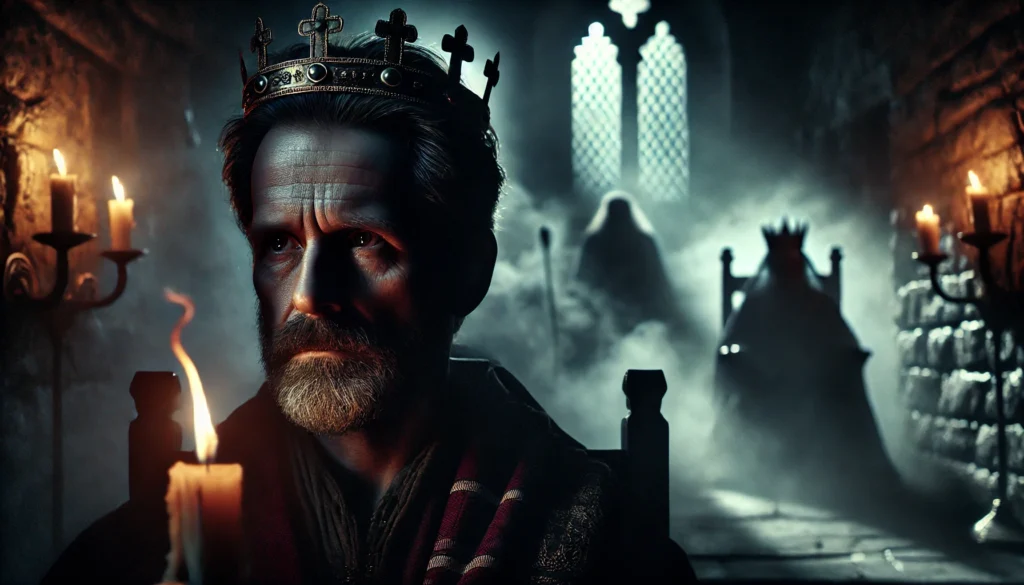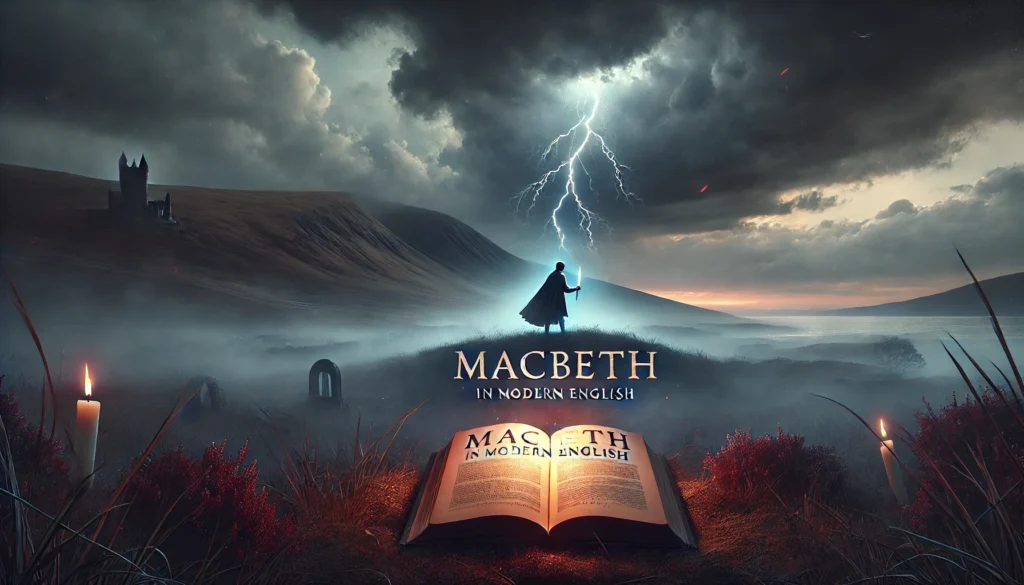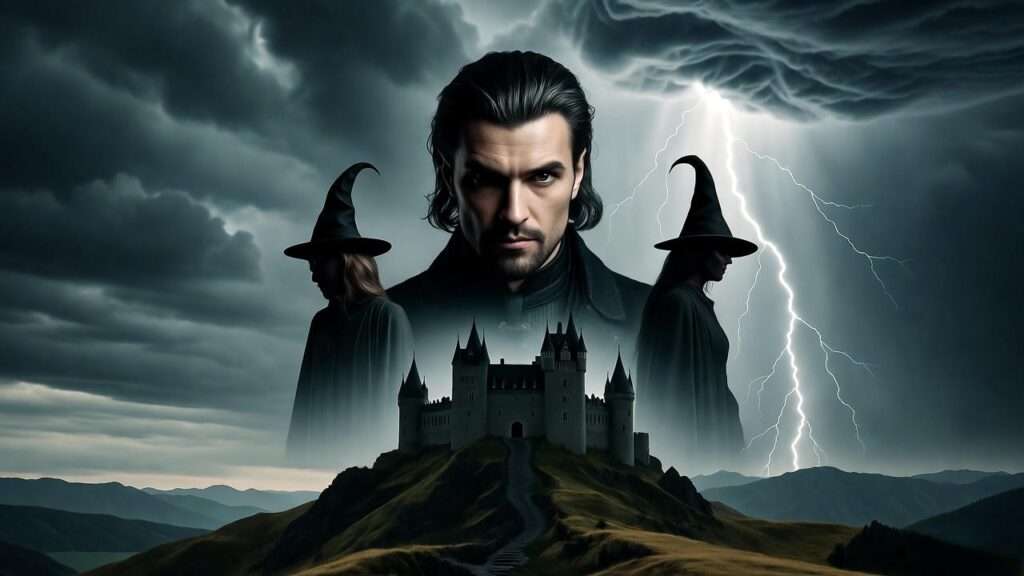Imagine a king, crowned in glory yet trembling in fear, his mind unraveling under the weight of his own ambition. In Macbeth, Act 3, Scene 1, Shakespeare delivers a chilling monologue that captures this pivotal moment in the tragedy—the monologue in Act 3 of Macbeth. Here, Macbeth’s inner turmoil erupts as he grapples with paranoia, guilt, and the fragility of his stolen throne. This speech, beginning “To be thus is nothing / But to be safely thus,” is more than a dramatic flourish; it’s the fulcrum of Macbeth’s descent into tyranny. For students, theater enthusiasts, and literature lovers, understanding this monologue unlocks the heart of Shakespeare’s exploration of power and morality. In this article, we’ll dissect its language, themes, and dramatic impact, offering expert insights, historical context, and practical applications to deepen your appreciation of this iconic moment.
Understanding the Context of Act 3 in Macbeth
The Turning Point of the Tragedy
By Act 3, Macbeth has shifted from a tale of ambition to one of irreversible moral decay. Macbeth, once a valiant Scottish thane, has murdered King Duncan to seize the crown, spurred by the witches’ prophecy and Lady Macbeth’s urging. Yet, his coronation brings no peace. Act 3 marks the midpoint of the play, where Macbeth’s actions spiral from calculated ambition to reckless paranoia. The monologue in Act 3, Scene 1, occurs as Macbeth reflects on his precarious position, haunted by the witches’ prophecy that Banquo’s descendants, not his own, will inherit the throne. This moment crystallizes Macbeth’s transformation into a tyrant willing to kill his closest ally to secure his legacy.
The events leading to this monologue are critical. Duncan’s murder in Act 2 has set Macbeth on a path of bloodshed, but Banquo’s loyalty and nobility pose a new threat. Unlike Macbeth, Banquo has resisted the witches’ temptation, making him a foil to Macbeth’s corrupted ambition. This context frames the monologue as a window into Macbeth’s fractured psyche, where fear and envy collide.
The Role of Monologues in Shakespeare’s Works
In Elizabethan drama, monologues serve as a lens into a character’s soul, revealing thoughts and motives hidden from other characters. Shakespeare masterfully uses this device to deepen audience empathy and advance thematic arcs. The monologue in Act 3 of Macbeth is a prime example, exposing Macbeth’s inner conflict in a way dialogue cannot. Unlike soliloquies in Hamlet (“To be or not to be”), which ponder existential questions, or Othello’s anguished speeches, Macbeth’s Act 3 monologue is driven by pragmatic fear—how to maintain power in a world of threats. This focus on political and personal insecurity distinguishes it, making it a cornerstone for analyzing Shakespeare’s portrayal of tyranny.
The Monologue in Act 3: Text and Analysis
The Specific Monologue – Act 3, Scene 1
The monologue, delivered in Act 3, Scene 1, lines 48–72, is a raw expression of Macbeth’s paranoia. Here is the full text for reference:
To be thus is nothing,
But to be safely thus. Our fears in Banquo
Stick deep, and in his royalty of nature
Reigns that which would be feared. ’Tis much he dares,
And to that dauntless temper of his mind
He hath a wisdom that doth guide his valor
To act in safety. There is none but he
Whose being I do fear, and under him
My genius is rebuked, as it is said
Mark Antony’s was by Caesar. He chid the sisters
When first they put the name of king upon me
And bade them speak to him. Then, prophetlike,
They hailed him father to a line of kings.
Upon my head they placed a fruitless crown
And put a barren scepter in my grip,
Thence to be wrenched with an unlineal hand,
No son of mine succeeding. If ’t be so,
For Banquo’s issue have I filed my mind;
For them the gracious Duncan have I murdered;
Put rancors in the vessel of my peace
Only for them, and mine eternal jewel
Given to the common enemy of man
To make them kings, the seed of Banquo kings!
Rather than so, come fate into the list,
And champion me to th’ utterance!
This speech reveals Macbeth’s obsession with Banquo’s noble character and the prophecy that Banquo’s heirs will rule. The opening line, “To be thus is nothing / But to be safely thus,” encapsulates his realization that kingship without security is meaningless. The monologue’s structure—shifting from fear of Banquo to resentment of the witches’ prophecy—mirrors Macbeth’s chaotic mental state.
Language and Literary Devices
Shakespeare’s language in this monologue is dense with metaphor, alliteration, and iambic pentameter, amplifying its emotional weight. The phrase “fruitless crown” and “barren scepter” evoke sterility, contrasting with Banquo’s promised lineage. These metaphors underscore Macbeth’s dread of a legacy that ends with him. Alliteration, as in “royalty of nature” and “dauntless temper,” emphasizes Banquo’s admirable qualities, intensifying Macbeth’s envy. The iambic pentameter, with its rhythmic heartbeat, mirrors Macbeth’s escalating anxiety, pulling the audience into his spiraling thoughts.
Recurring motifs of fate and barrenness permeate the speech. Macbeth’s reference to his “eternal jewel” (his soul) given to the “common enemy of man” (the devil) highlights the spiritual cost of his ambition. Literary scholar A.C. Bradley notes that this monologue marks Macbeth’s “first explicit acknowledgment of his soul’s damnation,” a pivotal shift in his moral trajectory.
Psychological Depth of Macbeth’s Character
The monologue lays bare Macbeth’s paranoia and insecurity. Unlike his earlier soliloquy in Act 1, Scene 7 (“If it were done when ’tis done”), where he debates Duncan’s murder, this speech shows a man consumed by fear of losing what he has gained. Macbeth’s fixation on Banquo’s “royalty of nature” and “wisdom” reveals his inferiority complex; he fears Banquo’s moral and intellectual superiority. His allusion to Mark Antony and Caesar suggests a classical awareness of betrayal, positioning Banquo as a rival whose very existence diminishes Macbeth’s “genius.”
Scholar Stephen Greenblatt argues that this monologue “captures the paradox of Macbeth’s ambition: the more he achieves, the more he fears.” This psychological insight resonates with modern readers, as Macbeth’s struggle mirrors contemporary anxieties about success and stability. His decision to order Banquo’s murder, prompted by this monologue, marks a point of no return, cementing his transformation into a tyrant.
Thematic Significance of the Monologue
Ambition and Its Consequences
The monologue in Act 3 of Macbeth underscores the destructive power of unchecked ambition. Macbeth’s realization that his crown is “fruitless” reflects the futility of his actions—murdering Duncan has not secured his legacy but instead deepened his insecurity. This theme resonates universally, as ambition drives both personal and political conflicts today. The monologue serves as a cautionary tale, warning against the moral compromises ambition often demands.
Fate vs. Free Will
Macbeth’s struggle with the witches’ prophecy about Banquo’s lineage highlights the tension between fate and free will. He rails against the prophecy, vowing to “champion” fate in a desperate bid to alter his destiny. This defiance reflects a broader theme in Macbeth: the illusion of control in a world governed by supernatural forces. The monologue’s focus on fate invites readers to consider how much agency individuals truly have over their futures.
Guilt and Moral Decay
The monologue reveals Macbeth’s growing detachment from morality. His reference to having “filed” (defiled) his mind and given his “eternal jewel” to the devil shows a man aware of his spiritual ruin yet unable to stop. Unlike Lady Macbeth, whose guilt manifests later in sleepwalking, Macbeth’s guilt in Act 3 is tinged with defiance, pushing him toward further violence. This moral decay is a cornerstone of the tragedy, making the monologue a critical lens for understanding Macbeth’s downfall.
Dramatic and Theatrical Impact
The Monologue in Performance
The monologue in Act 3, Scene 1 of Macbeth is a gift to actors, offering a chance to showcase psychological complexity and emotional range. Its delivery demands a balance of intensity and restraint, as Macbeth’s paranoia must feel both visceral and calculated. Iconic performances, such as Ian McKellen’s in the 1979 Royal Shakespeare Company production, emphasize Macbeth’s nervous energy, with rapid pacing and sharp glances conveying his fear of unseen threats. Patrick Stewart’s 2010 BBC adaptation, by contrast, uses a slower, introspective delivery, highlighting Macbeth’s resignation to his moral decay.
For actors, the key is to embody Macbeth’s inner conflict. Theater coach Emma Thompson suggests focusing on physicality: “Use subtle gestures—clenched fists, a twitching eye—to show Macbeth unraveling without overacting.” The monologue’s rhythm, driven by iambic pentameter, guides the delivery, with pauses after lines like “To be thus is nothing” amplifying the weight of Macbeth’s realization. Actors must also convey the shift from fear to resolve, as Macbeth decides to murder Banquo, making this moment a turning point in performance.
Staging and Directorial Choices
Directors use the monologue to create a sense of isolation and dread, often through minimalist staging. In the 2015 film Macbeth (directed by Justin Kurzel), the monologue is set against a bleak, misty landscape, with Michael Fassbender’s Macbeth speaking in near-whispers, emphasizing his paranoia. Lighting plays a crucial role—dim, flickering torchlight or stark shadows can mirror Macbeth’s fractured psyche. Sound design, such as eerie strings or distant drumbeats, enhances the tension, as seen in the Globe Theatre’s 2013 production.
Directorial choices also reflect thematic priorities. Some directors, like Rupert Goold in his 2010 staging, place Banquo’s ghostly presence subtly in the background, foreshadowing his murder. Others, such as Trevor Nunn, keep the stage bare, letting the actor’s delivery carry the scene. Theater scholar Marvin Rosenberg notes, “The monologue’s power lies in its intimacy—directors must resist over-dramatizing to let Shakespeare’s words breathe.” These choices make the monologue a focal point for both performers and audiences, cementing its dramatic significance.
Historical and Cultural Context
Shakespeare’s England and the Monologue’s Relevance
Written around 1606, Macbeth reflects the anxieties of Jacobean England, particularly concerns about royal succession and political stability. King James I, Shakespeare’s patron, traced his lineage to Banquo, making the monologue’s focus on Banquo’s heirs especially resonant. The witches’ prophecy, which haunts Macbeth, would have flattered James, reinforcing his divine right to rule. Additionally, the Gunpowder Plot of 1605, a failed attempt to assassinate James, heightened fears of betrayal, which echo in Macbeth’s distrust of Banquo. The monologue’s themes of loyalty and treachery thus spoke directly to contemporary audiences.
Shakespeare’s use of the supernatural also tapped into Jacobean fascination with witchcraft. James I’s treatise Daemonologie (1597) reflects his belief in witches, and the monologue’s reference to the witches’ prophecy aligns with this cultural obsession. By framing Macbeth’s fears within a supernatural context, Shakespeare made the monologue both a personal and political statement, appealing to his audience’s worldview.
The Monologue’s Universal Appeal
The monologue’s exploration of ambition, insecurity, and fate transcends its historical context, resonating with modern audiences. In today’s world, where leaders grapple with power and legacy, Macbeth’s fear of being supplanted feels strikingly relevant. Adaptations like Akira Kurosawa’s Throne of Blood (1957) and Joel Coen’s The Tragedy of Macbeth (2021) reimagine the monologue in new cultural settings, proving its timelessness. Its focus on the human cost of ambition—whether in politics, business, or personal life—makes it a touchstone for reflecting on ethical dilemmas.
Practical Applications for Readers and Students
Studying the Monologue for Academic Success
For students, analyzing the monologue in Act 3 of Macbeth is a gateway to mastering Shakespearean analysis. To excel in essays or exams, focus on three areas: literary devices, thematic connections, and historical context. For example, when discussing imagery, cite the “fruitless crown” to illustrate Macbeth’s fear of a barren legacy. Link the monologue to themes like ambition or fate, using quotes like “For Banquo’s issue have I filed my mind” to support arguments. Incorporate historical context, such as James I’s interest in Banquo, to add depth.
Sample essay question: “How does the monologue in Act 3, Scene 1 of Macbeth reflect the play’s exploration of ambition and moral decay?” A strong thesis might be: “The monologue reveals Macbeth’s transformation from ambitious thane to paranoid tyrant, using vivid imagery and psychological depth to underscore the destructive consequences of unchecked ambition.” Practice close reading by annotating the monologue for rhetorical devices, such as alliteration or metaphor, to strengthen your analysis.
Teaching Macbeth in the Classroom
Educators can make the monologue engaging through interactive activities. Start with a group reading, assigning students to perform the monologue with different emotions (e.g., anger, fear, despair) to explore its versatility. Encourage discussions on how Macbeth’s fears compare to modern anxieties about success or failure. Creative writing prompts, such as “Write a modern-day monologue inspired by Macbeth’s paranoia,” can help students connect the text to their lives. Visual aids, like a timeline of Macbeth’s psychological decline, can clarify the monologue’s role in the play.
Applying Insights to Personal Growth
The monologue’s themes offer valuable lessons for personal reflection. Macbeth’s obsession with securing his legacy warns against prioritizing ambition over ethics. Readers can apply this by evaluating their own goals: Are they driven by genuine purpose or external validation? The monologue also highlights the dangers of paranoia, encouraging mindfulness and trust in relationships. By reflecting on Macbeth’s choices, readers can make more ethical decisions in their personal and professional lives.
Expert Insights and Scholarly Perspectives
Literary scholars view the monologue as a cornerstone of Macbeth’s tragic arc. Harold Bloom writes, “Macbeth’s Act 3 monologue is the moment he fully embraces his damnation, choosing power over redemption.” Emma Smith adds, “The speech’s focus on Banquo’s nobility contrasts with Macbeth’s moral collapse, making it a microcosm of the play’s ethical concerns.” Some scholars debate whether Macbeth’s fear of Banquo stems from genuine threat or projection of his own guilt, highlighting the monologue’s psychological complexity.
The monologue also contributes to Macbeth’s status as a timeless tragedy. Its blend of personal introspection and universal themes ensures its relevance across centuries. As scholar Marjorie Garber notes, “Macbeth’s monologues invite us to confront our own capacity for ambition and betrayal,” making them essential for understanding Shakespeare’s enduring appeal.
FAQs About the Monologue in Act 3 of Macbeth
- What is the main theme of the monologue in Act 3 of Macbeth?
The monologue explores paranoia, ambition, and the fear of losing power, as Macbeth obsesses over Banquo’s potential to undermine his throne. - Why is this monologue significant in the play?
It marks Macbeth’s transformation into a tyrant, setting the stage for his tragic downfall through his decision to murder Banquo. - How should actors approach performing this monologue?
Actors should emphasize Macbeth’s inner conflict, using pacing and physicality to convey paranoia and desperation, balancing intensity with nuance. - How can students analyze this monologue effectively?
Focus on literary devices, thematic connections, and historical context, using quotes to support arguments and linking to broader play themes. - How does this monologue compare to others in Macbeth?
It builds on earlier monologues, like “Is this a dagger,” by showing Macbeth’s deeper descent into moral corruption and fear.
The monologue in Act 3, Scene 1 of Macbeth is a masterful depiction of a man undone by his own ambition. Through its vivid language, psychological depth, and thematic richness, it serves as the tragic turning point of Shakespeare’s play. For students, it offers a lens for analyzing character and themes; for actors, a chance to explore complex emotions; and for all readers, a mirror to reflect on ambition and morality. Reread the monologue, watch a performance, or dive into Macbeth to uncover its timeless truths. As Macbeth’s words remind us, the pursuit of power without principle is a path to ruin—a lesson as relevant today as in Shakespeare’s time.













